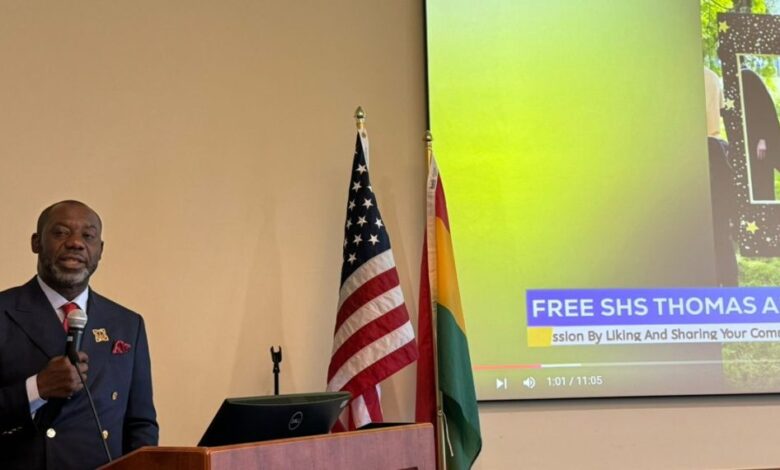Dr. Matthew Opoku Prempeh Highlights Success of Free SHS Policy at University of Memphis Event
Dr. Matthew Opoku Prempeh Highlights Success of Free SHS Policy at University of Memphis Event

- Dr. Matthew Opoku Prempeh has highlighted the significant successes of the Free SHS policy
- He stressed that more students can now pursue secondary education without the financial constraints
- Dr. Prempeh highlighted the equity aspect of the Free SHS program
Dr. Matthew Opoku Prempeh, the New Patriotic Party (NPP) running mate, has highlighted the significant successes of Ghana’s Free Senior High School (SHS) policy, emphasizing its positive effects on educational access and equity.
Speaking at the University of Memphis on October 19, Dr. Prempeh, known as NAPO, underscored how the Free SHS program has expanded educational opportunities, especially for underprivileged students, while dispelling claims that it has diminished education quality.
Reflecting on his tenure as Minister of Education during the policy’s launch in 2017, he noted that the initiative has bolstered academic performance and reduced educational inequality nationwide.
He stressed that more students can now pursue secondary education without the financial constraints that once burdened many families.
Dr. Prempeh also emphasized the long-term benefits of the Free SHS policy, arguing it is a crucial investment in the country’s future, cultivating a well-educated and skilled workforce to drive national progress.
He stated, “A cursory analysis of core subject performance from 2015 to 2023 shows significant improvement over the past five years. For instance, in the 2022 and 2023 cohorts, over 60% of candidates achieved A1-C6 in all core subjects, which are the qualifying grades for tertiary admission in Ghana.”
He added, “The 2023 results are the best we’ve seen in nine years, clearly refuting claims that the Free Senior High School Policy compromises educational quality.”
Dr. Prempeh highlighted the equity aspect of the Free SHS program, noting its role in removing financial barriers and ensuring access for children from disadvantaged backgrounds. He mentioned the introduction of a 30% equity policy, reserving spots in top schools for students from public basic schools who excelled in their Basic Education Certificate Examination (BECE).
“This affirmative action policy has proven that many of these students can thrive in elite schools when given equal opportunities, showcasing the potential of all our children.”
He concluded by addressing gender balance, stating that enrollment data now reflects the national population dynamics, achieving gender parity.





